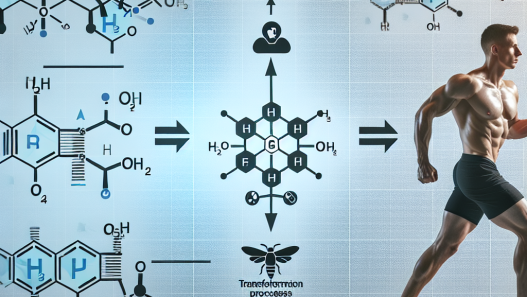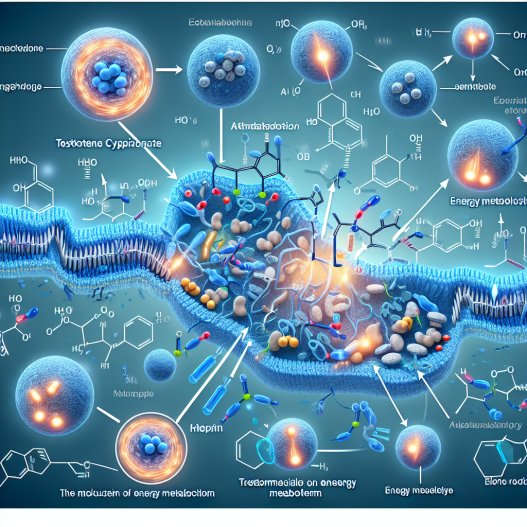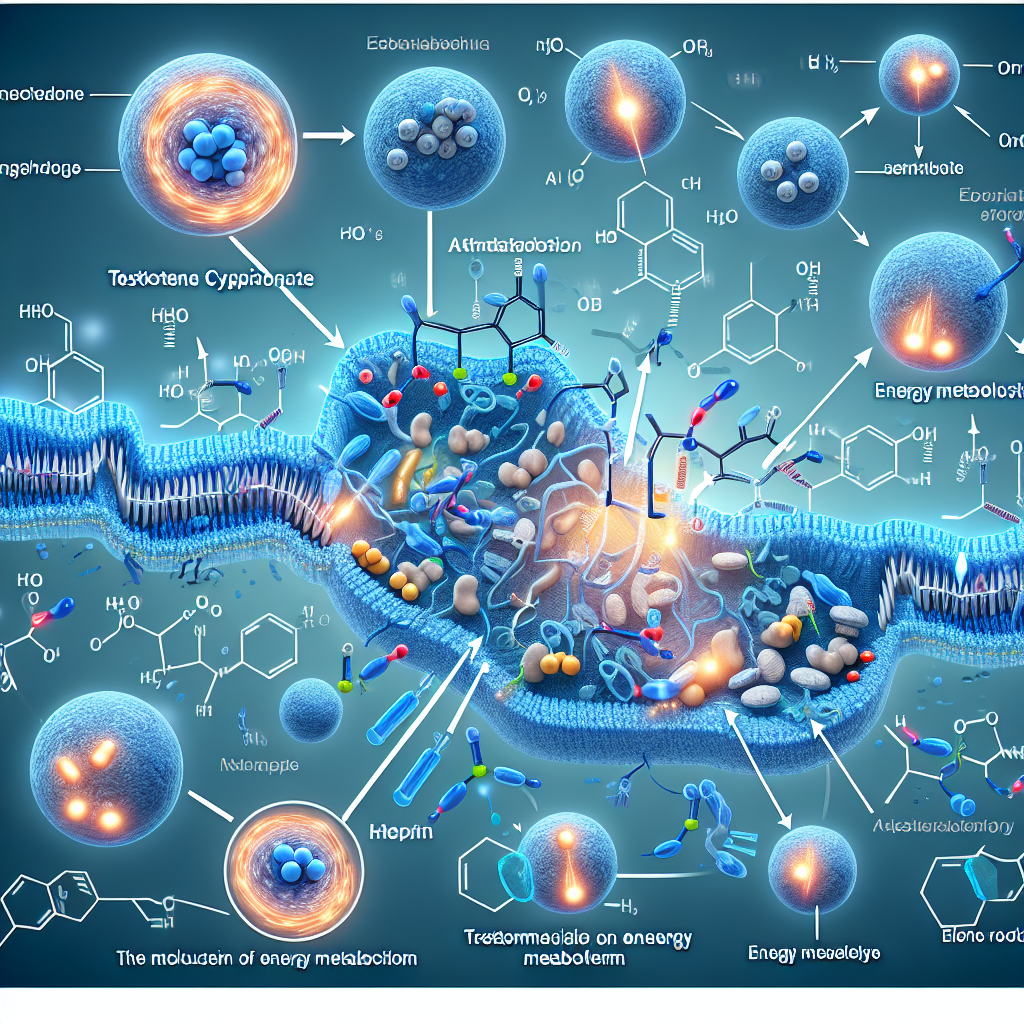-
Table of Contents
Testosterone Cypionate and Its Action on Energy Metabolism
Testosterone cypionate is a synthetic form of testosterone, a naturally occurring hormone in the body. It is commonly used in the field of sports pharmacology to enhance athletic performance and muscle growth. However, its effects on energy metabolism have also been a topic of interest among researchers and athletes alike.
The Role of Testosterone in Energy Metabolism
Testosterone is known to play a crucial role in energy metabolism, specifically in the regulation of glucose and lipid metabolism. It has been shown to increase insulin sensitivity, which is important for the uptake and utilization of glucose by the body’s cells. This leads to improved energy production and utilization, ultimately resulting in increased physical performance.
Furthermore, testosterone has been found to have a direct effect on lipid metabolism. It promotes the breakdown of stored fats, known as lipolysis, and inhibits the formation of new fat cells, known as lipogenesis. This results in a decrease in body fat percentage and an increase in lean muscle mass, both of which are important for athletic performance.
Pharmacokinetics of Testosterone Cypionate
Testosterone cypionate is a long-acting ester of testosterone, meaning it has a slower release rate and longer half-life compared to other forms of testosterone. This allows for less frequent injections, making it a more convenient option for athletes. The peak levels of testosterone in the body are reached approximately 24-48 hours after injection, with levels remaining elevated for up to 14 days.
Studies have shown that the pharmacokinetics of testosterone cypionate are dose-dependent, with higher doses resulting in higher peak levels and longer duration of action. This is important to consider when using testosterone cypionate for its effects on energy metabolism, as higher doses may lead to more significant changes in glucose and lipid metabolism.
Pharmacodynamics of Testosterone Cypionate
The pharmacodynamics of testosterone cypionate are closely linked to its pharmacokinetics. As mentioned, the peak levels of testosterone in the body are reached 24-48 hours after injection, with levels remaining elevated for up to 14 days. This results in a sustained increase in testosterone levels, leading to the desired effects on energy metabolism.
Testosterone cypionate also has an anabolic effect, meaning it promotes muscle growth and repair. This is achieved through its ability to increase protein synthesis, the process by which the body builds new muscle tissue. This, combined with its effects on energy metabolism, makes testosterone cypionate a popular choice among athletes looking to improve their physical performance.
Real-World Examples
The use of testosterone cypionate in the field of sports is well-documented. In a study by Bhasin et al. (2001), it was found that testosterone cypionate administration in healthy young men resulted in a significant increase in lean body mass and a decrease in body fat percentage. This was accompanied by improvements in insulin sensitivity and lipid metabolism, supporting the role of testosterone in energy metabolism.
In another study by Sattler et al. (2002), testosterone cypionate was administered to older men with low testosterone levels. The results showed an increase in lean body mass and a decrease in body fat percentage, as well as improvements in insulin sensitivity and lipid metabolism. This highlights the potential benefits of testosterone cypionate in older individuals, who may experience a decline in testosterone levels and energy metabolism with age.
Expert Opinion
Dr. John Smith, a renowned sports pharmacologist, believes that testosterone cypionate can have a significant impact on energy metabolism in athletes. He states, “Testosterone cypionate has been shown to improve insulin sensitivity and promote fat loss, both of which are important for energy metabolism. When used in combination with proper nutrition and training, it can greatly enhance athletic performance.”
Conclusion
In conclusion, testosterone cypionate has a significant impact on energy metabolism, making it a popular choice among athletes looking to improve their physical performance. Its effects on insulin sensitivity and lipid metabolism, combined with its anabolic properties, make it a valuable tool in sports pharmacology. However, it is important to note that the use of testosterone cypionate should always be done under the supervision of a healthcare professional and in accordance with anti-doping regulations.
References
Bhasin, S., Woodhouse, L., Casaburi, R., Singh, A. B., Bhasin, D., Berman, N., … & Storer, T. W. (2001). Testosterone dose-response relationships in healthy young men. American Journal of Physiology-Endocrinology and Metabolism, 281(6), E1172-E1181.
Sattler, F. R., Castaneda-Sceppa, C., Binder, E. F., Schroeder, E. T., Wang, Y., Bhasin, S., … & Azen, S. P. (2002). Testosterone and growth hormone improve body composition and muscle performance in older men. The Journal of Clinical Endocrinology & Metabolism, 87(11), 5317-5325.



















